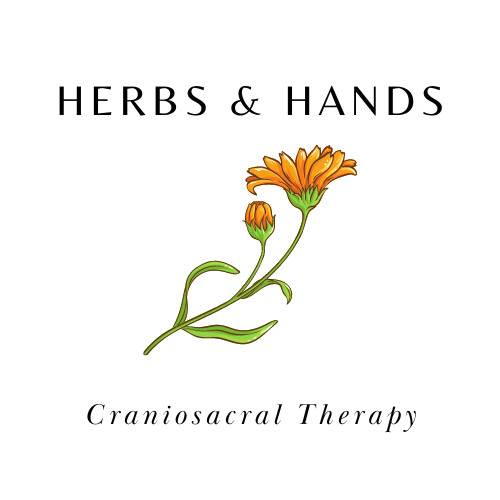Herbs for Sleep
Sleep can be deliciously refreshing and rejuvenating. Trying to sleep can be one of the more frustrating and draining experiences of our days. As a practitioner, I have helped many people find relief in sleep although for some sleep remains difficult. In the world of wellness, many strongly believe that there is one specific way for us all to sleep, but over time, I have learned that this is not true. Some people will sleep soundly for 8 hours at a stretch between the hours of 10PM and 6AM, but this doesn’t work for everyone. Instead of trying to have us all fit into the same box, let’s instead allow room for people to find their healthy sleep pattern and offer up help when this is more difficult. Healthy doesn’t mean average or textbook, so let’s try and let that myth die shall we?
Setting the stage for sleep:
Before we jump in to learning about and playing with herbs, let’s remember that herbs can only do so much. Our bodies need more than the sweet relaxation of chamomile or lavender to go through the complex hormonal and neurological processes that bring on sleep. This is why simply adding in herbs doesn’t work for most people.
Things to consider before heading to bed:
Am I calm and sleepy?
If your brain and body don’t feel ready for sleep, slipping into bed may not be your best next step. There are many different things we can do to calm ourselves to get in the mood for some ZZZZs. Things like a cup of calming tea, a slow and gentle full body stretching routine, listening to a calm story, meditation, journaling, laughter, orgasm, massage, snuggles, catching up with a loved one, music, and a warm bath can all be helpful. The key is finding those things that help you feel ready for sleep and making them a regular part of a wind down routine. Try not to use screens in your wind down routine, but if you must, look for soothing things to watch and use blue light blocking screen covers or glasses (the built-in night modes can help some, but not enough to encourage melatonin production).
Is my sleeping space a comfortable, safe feeling place?
This can sometimes be beyond our control, but there are things we can do to try and make our situation feel more safe. An eye mask can block out light, ear plugs can block out noises, and a soft fluffy blanket can make a big difference. If you have more control over your environment, working to eliminate extra noises with a white noise machine or fan, blocking out street lights and covering lights or removing devices with lights from your sleeping space can be very helpful. If you can, keep the temperature a bit lower as this helps with sleep - you can add an extra blanket if needed.
Do I need any specific items to help me with sleep?
This could be something like a C-PAP machine or mouth guard if you have obstructive sleep apnea. It could also be a comfort item such as a specific blanket, pillow, pet, or stuffed animal.
Has it been a couple of hours since I ate?
Really, it is much easier to sleep when your body isn’t in the process of actively breaking down your last meal. For persons with diabetes or hypoglycemia, the opposite may be true. If you find yourself waking anxious around the same time every night, you may have low blood sugar, and your body may be waking you up to take care of it. If this is the case, a small snack like 1/2 a sandwich or a handful of nuts 30 minutes before bed may help you sleep through the night. If you find this to be the case, please consult with a medical professional who recognizes this as an issue and will help you address your blood sugar issues with more than pharmaceutical or herbal medications.
Herbs to help you drift off:
Now that we have taken care of setting the stage for sleep, let’s meet a few herbs that can be helpful.
Herbs to calm you down:
These friends will help calm us so we can feel ready for sleep when it’s time to get into bed. Herbalists call these herbs many different things such as calmatives, anxiolytics, and relaxants. Often these herbs have multiple different medicinal uses both related to the nervous system and the digestive system. If you’ve ever experienced anxiety related IBS - you understand this connection quite well. I was a very nervous child, and I remember the night before the first day of school always being spent more in my bathroom than in my bedroom.
My favorite herbs in this category include:
Chamomile
Catnip
California Poppy
Lavender
Lemon balm
Skullcap
Fantastically, all of these herbs are quite easy to grow and dry to make a delicious and soothing bedtime tea or tincture. One could even make a strong tea and create sleepy gummies using gelatin as another option.
Herbs to put you to sleep/stay asleep:
These herbs tend to be more sedating than those listed above, but you will see a few crossovers as well. Herbalists refer to these herbs as hypnotics. A few of my favorites include:
Kava Kava
Hops
Passion flower
Valerian
Of the three listed above, I tend to prefer passion flower and hops both of which can be grown pretty easily here in the Pacific NW and tend to work a bit more gently helping me sleep more soundly through the night rather than until the herbal effects leave my system.
Herbs to help you dream:
There are a few lovely herbal friends that tend to help people have more vivid dreams that they remember better. While these herbs can be taken internally, they also make great additions to dream pillows. Did you know that Abraham Lincoln slept with a pillow of hops to help with his insomnia? My favorites include:
Blue Vervain
Mugwort
Rosemary
I have all three of these herbs growing in my garden, they are perennial which means they will stick around year after year - don’t be discouraged if they die off over the winter, they will return in the Spring.
*A note on “Sleeping Pills” and how to use herbs for sleep*
Some people who have not had a full night of sleep in a long while will consider reaching for pharmaceutical or over the counter sleeping aids first. I strongly caution you against this. While they may help you fall asleep, most sleeping pills alter your sleep cycles robbing you of the deep sleep needed for healing and memory retention. If you have been using sleeping pills and noticing that your sleep while increased in quantity doesn’t seem to be helping you feel rested the next day, this can be why.
You may notice that there are many different herbs you can work with and you can combine them to make a formula that works well for you. Remember to always talk with a medical provider well versed in your medical conditions, medications, and herbal medicine before trying any new herbs - we want the herbs to help and not accidentally do harm to us.
Also, if you have been trying herbs to help with sleep for 2 weeks with no relief, it’s time to see your herbalist/naturopathic doctor. If you have been using herbs for a month and you can’t sleep without them, it’s also time to consult your herbalist/naturopathic doctor. Herbs are not meant to be used the same way indefinitely. Herbs are meant to be used to heal and then stopped or used situationally for short periods of time when you are under some kind of extra stress.
I hope you have found this information interesting and helpful. I would love to hear about your favorite herbs for sleep in the comments!
To our health!





